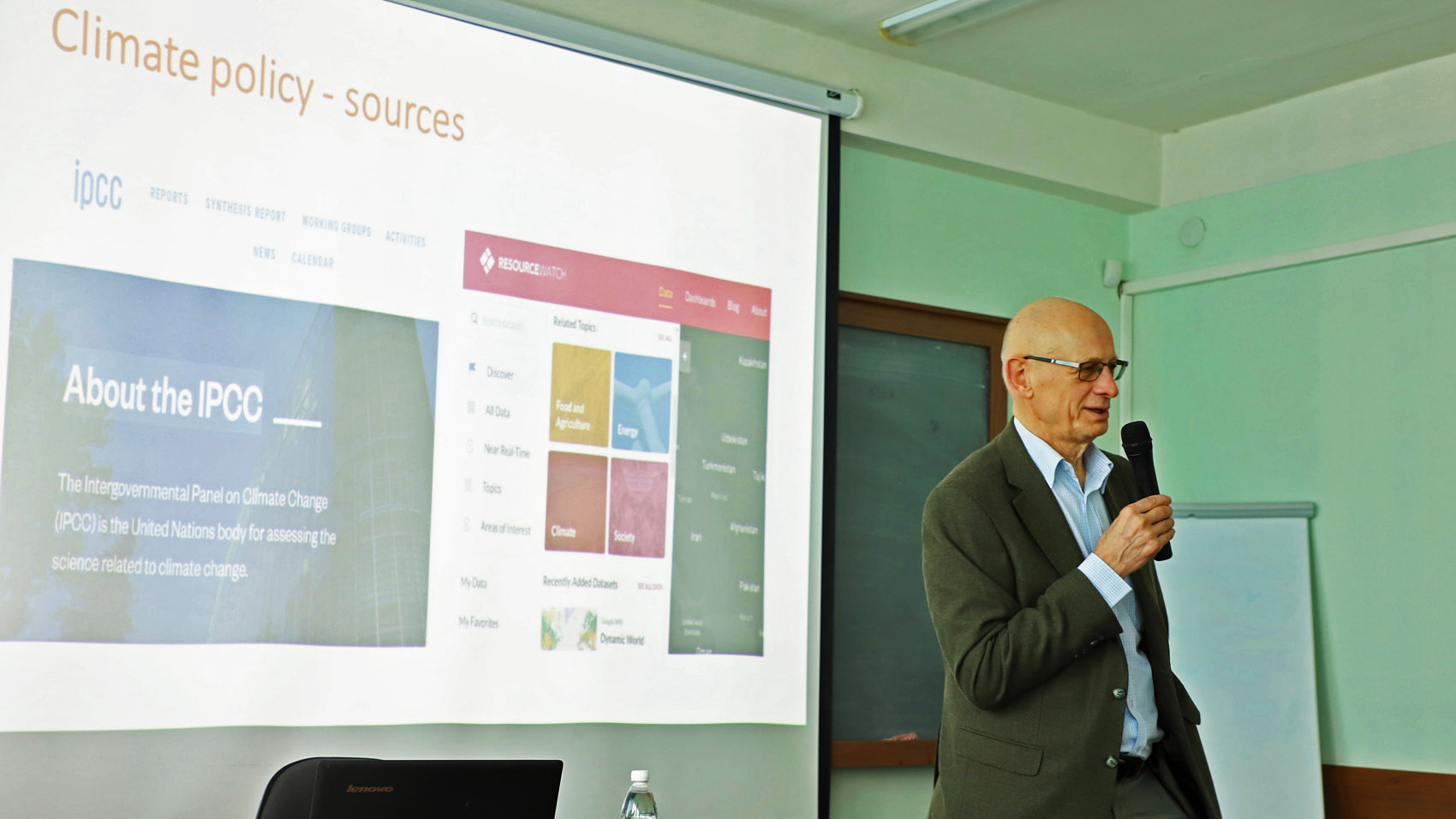The second lecture of the cycle by the Polish diplomat and academic Marek Ziółkowski took place on February 26. This time it was about the initiatives of big business on the way to Net-zero, as well as spheres of activity which have the greatest impact on the planet’s climate and new environmental regulations in the European Union.
The importance of environmental policy is clearly demonstrated by the report of the World Economic Forum, where every year there is a list of 10 relevant global risks for the next two and ten years. 5 of them for the next two years and 6 of them for the next ten years are ecological. Analysts are saying that in the coming decades, the biggest risks for humanity are climate catastrophe and nuclear war.
The Intergovernmental Panel on Climate Change, which includes the Ministry of Environmental Protection and Natural Resources of Ukraine, professionally assesses climate change and, accordingly, gives disappointing forecasts in the event of human inaction. Mr. Ziółkowski recommends reading the organization’s detailed reports to ascertain the seriousness of this issue.
If we look at the green policy measures in various countries, it is notable that, according to analysts, China has no particular desire to fight the global West with military or geopolitical maneuvers. Instead, it sees a rapid green transformation as a lever for economic victory.
A new concept – EU Taxonomy – was adopted in the EU almost four years ago. This system establishes certain conditions for economic activity to be considered ecological and which correspond to the objectives of the EU Green Deal until 2030.
The mandatory energy performance certificates, which give an assessment of the energy efficiency of the building, were introduced last year or even earlier in Poland and in the countries of Western Europe. Of course, older buildings will have worse certificates, which will mean that they need modernization.
In Ukraine, however, the above-mentioned trends are not so obvious. War waste is an important issue in the field of ecology in our country. Forest fires, minefields, destruction and battle debris will pose a serious challenge to our state during the reconstruction period.
At the next meeting, on March 4, Marek Ziółkowski will talk, among other things, about disinformation in the field of environmental policy. This applies, for example, to misconceptions about waste processing plants or the EU’s climate policy, which leads to farmers’ protests in Europe, in particular on the Polish-Ukrainian border.
